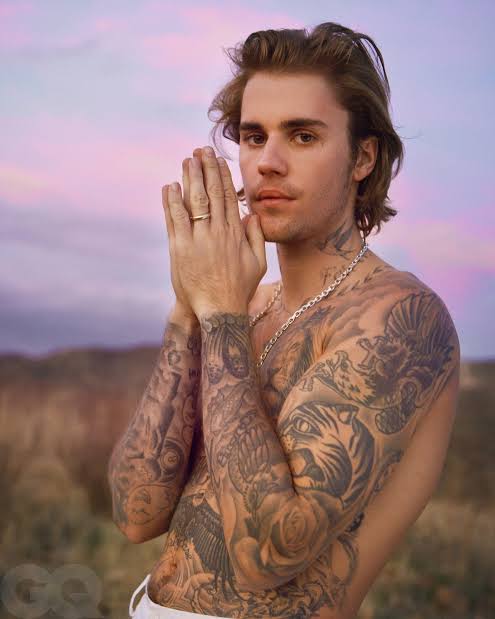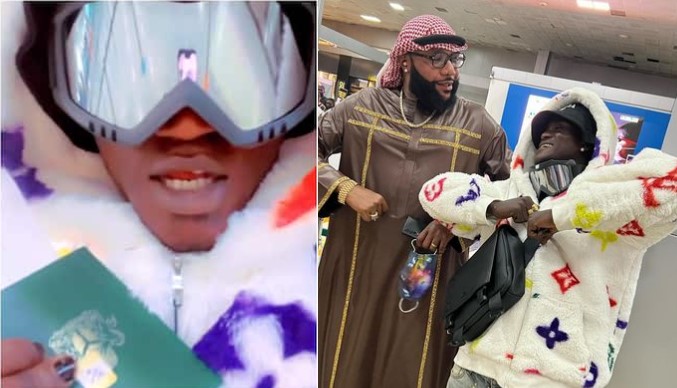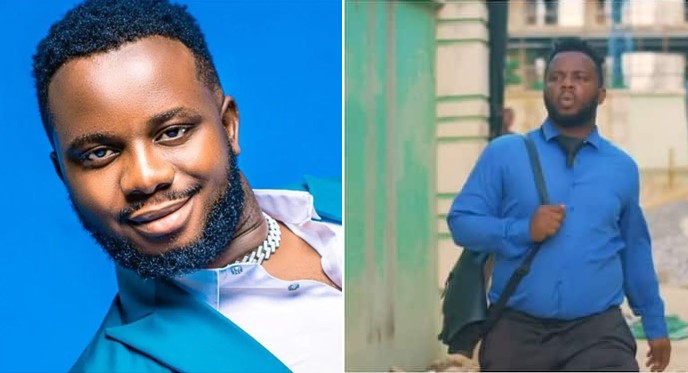He made every mistake a child star can make, including the ones that nearly destroyed him. Now—fortified by God, marriage, and a new album, Justice—Justin Bieber is putting his life back together, one positive, deliberate step at a time.
Justin Bieber and I have just met when I ask him something and he talks and talks—for 10 illuminating and uninterrupted minutes he talks. He talks about God and faith and castles in Ireland, about shame and drugs and marriage. He talks about what it is to feel empty inside, and what it is to feel full. At one point he says, “I’m going to wrap it up here,” but he doesn’t, he just keeps going, and that is what it is like to talk to Justin Bieber now. Like you’re in the confessional booth with him. Like whatever rules about “privacy” or the thick opaque wall of massive celebrity that people like Bieber are supposed to follow don’t apply.
He has lived a well-documented life—maybe among the more well-documented lives in the history of this decaying planet. But to my knowledge, there is not one example of him speaking this way—in a moving but unprompted, unselfconscious torrent of words—in public prior to this moment. I will admit to being disoriented. If I’m being honest, I had been expecting someone else entirely—someone more monosyllabic; someone more distracted, more unhappy; someone more like the guy I’m pretty sure Justin Bieber was not all that long ago—and now I am so thrown that the best I can do is stammer out some tortured version of… How did you become this person? By which I mean: seemingly guileless. Bursting with the desire to connect, to tell his own story, in case it might be of use to anyone else.
It’s a question that’s not even a question, really. But what Bieber gently says in response is: “That’s okay.”
He knows approximately what I’m asking—how he got from wherever he was to here, to becoming the man in front of me, clear-eyed on a computer screen from an undisclosed location in Los Angeles. His hair, under a Vetements hat, is long in the back; he is in no particular hurry. He is married to a woman—Hailey Baldwin Bieber—who cares for him like no one has ever cared for him, he says. He is happy. He is currently renovating the house in which he will live happily with his wife. He’s spent the past several months piecing together a new record, Justice, which is dense with love songs and ’80s-style anthems—interspersed with some well-intentioned, if not totally well-advised, interludes featuring the voice of Martin Luther King Jr.—that are bluntly honest about his bad past and equally optimistic about his future. (“Everybody saw me sick, and it felt like no one gave a shit,” he sings on the cathartic last song on the record, “Lonely.”) He’s still so overflowing with music that he puts out Freedom, a meditative, postscript of an EP about faith, just a few weeks after Justice. He is, if anything, the empathetic professional in this interaction too as he goes about trying to help me understand how he’s arrived at where he’s arrived.
“I’ll answer as best I can,” he says, nodding. As for who he was in the not-so-distant past: “Hurt people hurt people—you know? And there’s a quote; I’m trying to remember it. I don’t know if it’s biblical, if it’s in the Bible. But I do remember this quote: The comforted become the comforters. I don’t know if you’ve heard that before. But I really do feel comforted. I have a wife who I adore, who I feel comforted by. I feel safe. I feel like my relationship with God is wonderful. And I have this outpouring of love that I want to be able to share with people, you know?”
He is aware that people have perceived him at times as anything but full of love. But today, he says, he thinks of himself as a comforter, in part because he knows what it is to have been the person who needed comfort so badly. He asks himself now: How can I be of service? The new music, the inspirational messages he posts on Instagram, the deliberately calm manner in which he goes about his days—all of it is addressed in some ways to his younger self, to the kid who was drowning and felt like he’d never be saved. Justin Bieber wants to save that kid now. He wants to talk to him. He wants to tell him not all is lost.
“I don’t want to let my shame of my past dictate what I’m able to do now for people,” Bieber says. “A lot of people let their past weigh them down, and they never do what they want to do because they think that they’re not good enough. But I’m just like: ‘I did a bunch of stupid shit. That’s okay. I’m still available. I’m still available to help. And I’m still worthy of helping.’ ”
Subscribe
The Redemption of Justin Bieber
ZACH BARON
RYAN MCGINLEY
April 13, 2021 8:00 AM
Image may contain: Human, Person, Bungee, Rope, Adventure, and Leisure Activities
Jumpsuit, $4,200, by Dior Men.
He made every mistake a child star can make, including the ones that nearly destroyed him. Now—fortified by God, marriage, and a new album, Justice—Justin Bieber is putting his life back together, one positive, deliberate step at a time.
Justin Bieber and I have just met when I ask him something and he talks and talks—for 10 illuminating and uninterrupted minutes he talks. He talks about God and faith and castles in Ireland, about shame and drugs and marriage. He talks about what it is to feel empty inside, and what it is to feel full. At one point he says, “I’m going to wrap it up here,” but he doesn’t, he just keeps going, and that is what it is like to talk to Justin Bieber now. Like you’re in the confessional booth with him. Like whatever rules about “privacy” or the thick opaque wall of massive celebrity that people like Bieber are supposed to follow don’t apply.
Image may contain: Human, Person, and Magazine
Jumpsuit, $4,200, by Dior Men. Ring, his own.
Justin Bieber covers the May 2021 issue of GQ. Secure your own copy here.
He has lived a well-documented life—maybe among the more well-documented lives in the history of this decaying planet. But to my knowledge, there is not one example of him speaking this way—in a moving but unprompted, unselfconscious torrent of words—in public prior to this moment. I will admit to being disoriented. If I’m being honest, I had been expecting someone else entirely—someone more monosyllabic; someone more distracted, more unhappy; someone more like the guy I’m pretty sure Justin Bieber was not all that long ago—and now I am so thrown that the best I can do is stammer out some tortured version of… How did you become this person? By which I mean: seemingly guileless. Bursting with the desire to connect, to tell his own story, in case it might be of use to anyone else.
It’s a question that’s not even a question, really. But what Bieber gently says in response is: “That’s okay.”
He knows approximately what I’m asking—how he got from wherever he was to here, to becoming the man in front of me, clear-eyed on a computer screen from an undisclosed location in Los Angeles. His hair, under a Vetements hat, is long in the back; he is in no particular hurry. He is married to a woman—Hailey Baldwin Bieber—who cares for him like no one has ever cared for him, he says. He is happy. He is currently renovating the house in which he will live happily with his wife. He’s spent the past several months piecing together a new record, Justice, which is dense with love songs and ’80s-style anthems—interspersed with some well-intentioned, if not totally well-advised, interludes featuring the voice of Martin Luther King Jr.—that are bluntly honest about his bad past and equally optimistic about his future. (“Everybody saw me sick, and it felt like no one gave a shit,” he sings on the cathartic last song on the record, “Lonely.”) He’s still so overflowing with music that he puts out Freedom, a meditative, postscript of an EP about faith, just a few weeks after Justice. He is, if anything, the empathetic professional in this interaction too as he goes about trying to help me understand how he’s arrived at where he’s arrived.
Image may contain: Clothing, Apparel, Human, Person, Hat, Sleeve, and Finger
Image may contain: Human, Person, and Roof
Shirt, $890, by Celine Homme by Hedi Slimane. Tank top, $42 (for pack of three), by Calvin Klein Underwear. Jeans, $198, by Levi’s Authorized Vintage. Socks, $129, by Paul Stuart. Hat, $21, by x Karla. Bracelet (chain), $8,500, by Tiffany & Co. Bracelet (cuff), $45,500, by Cartier. Ring (throughout), his own.
“I’ll answer as best I can,” he says, nodding. As for who he was in the not-so-distant past: “Hurt people hurt people—you know? And there’s a quote; I’m trying to remember it. I don’t know if it’s biblical, if it’s in the Bible. But I do remember this quote: The comforted become the comforters. I don’t know if you’ve heard that before. But I really do feel comforted. I have a wife who I adore, who I feel comforted by. I feel safe. I feel like my relationship with God is wonderful. And I have this outpouring of love that I want to be able to share with people, you know?”
He is aware that people have perceived him at times as anything but full of love. But today, he says, he thinks of himself as a comforter, in part because he knows what it is to have been the person who needed comfort so badly. He asks himself now: How can I be of service? The new music, the inspirational messages he posts on Instagram, the deliberately calm manner in which he goes about his days—all of it is addressed in some ways to his younger self, to the kid who was drowning and felt like he’d never be saved. Justin Bieber wants to save that kid now. He wants to talk to him. He wants to tell him not all is lost.
Image may contain: Skin, Tattoo, Human, Person, Clothing, Shoe, Footwear, and Apparel
Jeans, $198, by Levi’s Authorized Vintage. His own underwear by Calvin Klein Underwear. Sneakers, $120, by Nike x Sacai. Socks, $14, by American Trench.
“I don’t want to let my shame of my past dictate what I’m able to do now for people,” Bieber says. “A lot of people let their past weigh them down, and they never do what they want to do because they think that they’re not good enough. But I’m just like: ‘I did a bunch of stupid shit. That’s okay. I’m still available. I’m still available to help. And I’m still worthy of helping.’ ”
Watch Now:
Inside Justin Bieber’s Tour Bus
To gain access to him during a pandemic, one must first get through his private medical team. A nurse is on call at the house and at the studio. Collaborators, friends, managers, producers, songwriters, engineers, all the disparate people one needs to gather together to again commence the work of being Justin Bieber—all are administered one rapid test and one PCR. “There’s so many different tests,” Bieber says. “They get kinda weird, but it’s important for us, since we’re operating on such a big level, with so many people, that we keep everyone safe.” Bieber and Hailey spent the first three or four months of the pandemic in Canada, where he was born, and then they came back to Los Angeles and they’ve been here ever since. He is 27, and this interlude at home represents probably the longest time he’s spent in one place since his childhood. “I’ve been moving since I was like 15 or 16,” he says.




